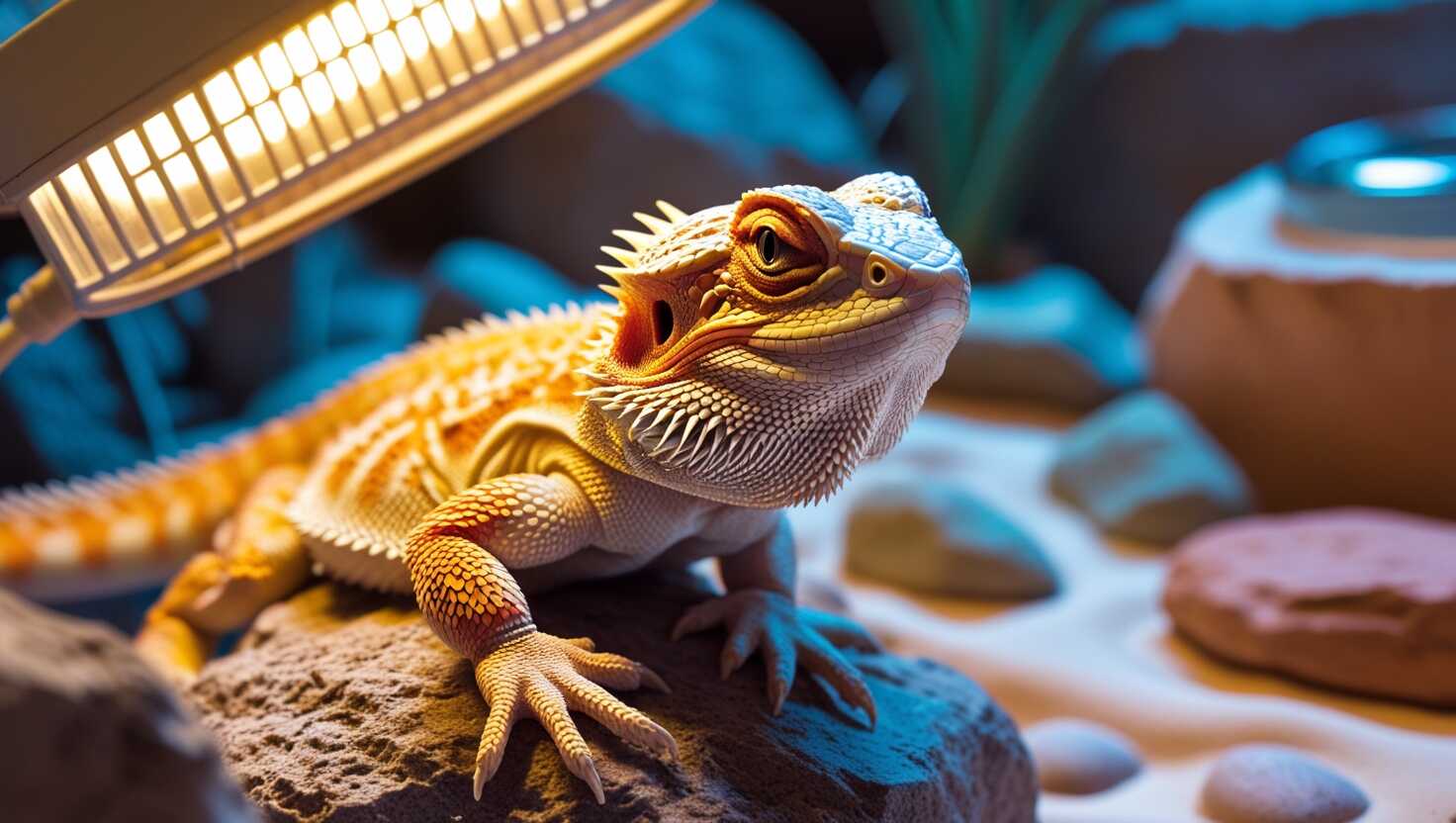How Long do Bearded Dragons Live
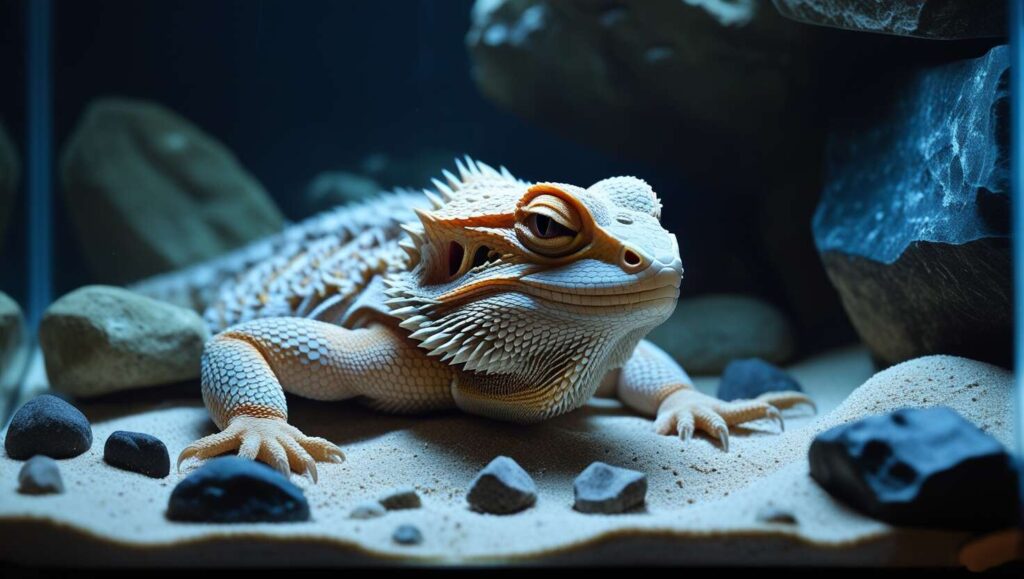
Bearded dragons live 5-8 years in the wild but can reach 10-15 years in captivity with proper care, diet, and environment. Good lighting, calcium supplements, and veterinary care significantly improve their lifespan. Poor husbandry can lead to diseases that shorten their life.
Understanding Lifespan
Bearded dragons are fascinating reptiles originally from Australia. In the wild, these reptiles face natural challenges like predation, limited food and water, and temperature extremes. Because of these, their lifespan is shorter, usually around 5 to 8 years. However, when housed as domestic pets in the United States and other regions, with proper care and a well-balanced diet, they can live up to 10-15 years in captivity.
When raised with UVB lighting, calcium supplements, and a variety of live bugs, beardies develop good health and reach sexual maturity between 8 to 12 months of age. Females can lay multiple clutches of eggs per year, each containing up to 20. Some eggs may be unfertilized depending on whether a male has mated with the female. The fertilized eggs typically hatch in 55 to 75 days under the right temperatures.
During winter, bearded dragons undergo a phase called brumation—similar to hibernation—to conserve energy. Good veterinary care and regular monitoring are key to ensuring their life expectancy improves, especially since captivity eliminates many natural predators.
Factors Influencing Lifespan
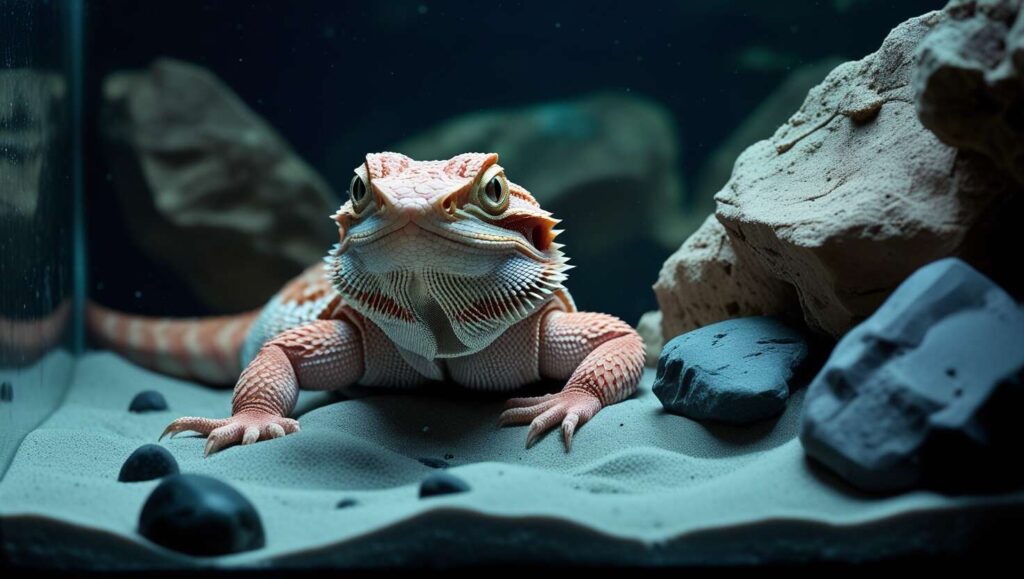
The lifespan of bearded dragons depends on their health, environment, and genetics. One concern is poor husbandry, which may lead to diseases like metabolic bone disease or kidney issues. Proper calcium supplementation, correct lighting, and ideal basking temperatures are crucial. A balanced diet of calcium dusted, gut-loaded insects such as dubia roaches, superworms, and crickets, along with leafy greens and vegetables, improves hydration and health.
Inbreeding by careless breeders can lead to genetic problems, including malformations, deformities, and weak immune systems. Some selectively bred types, like the silkback variant, may have smooth skin but face shedding difficulties. Female dragons can also face retained follicles, which might rupture, causing serious internal problems that require medical intervention.
To prevent illnesses, dragons should be quarantined when introduced to new environments and kept in solitary enclosures to avoid injury and wounds. Stress from overcrowded conditions can traumatize dragons, leading to periodontal diseases in teeth and gums. Regular vet-checks by a veterinarian help to monitor their condition and ensure early detection of any life-threatening issues. Proper care helps these pets live a long and healthy life.
Health and Wellness Factors
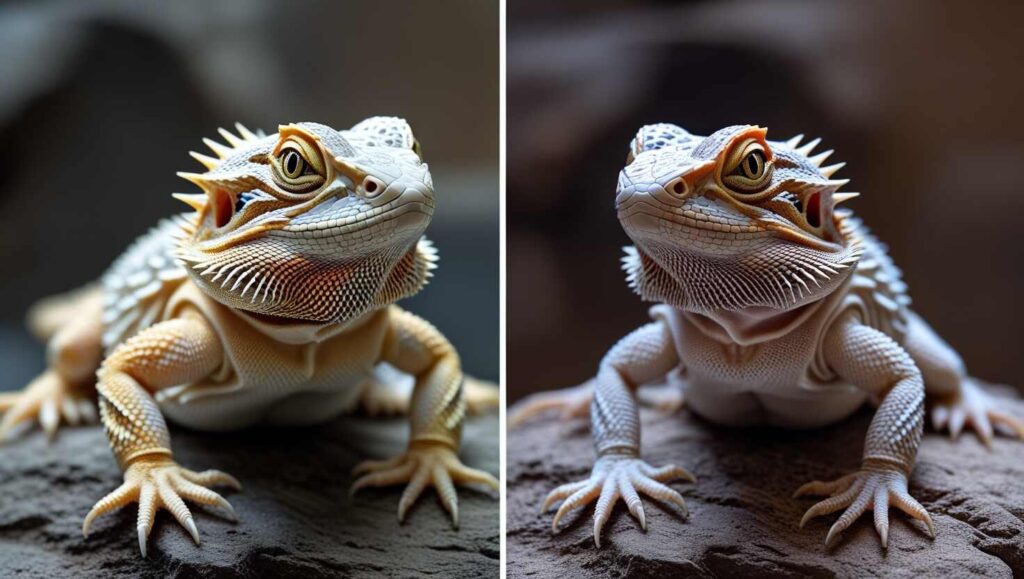
A bearded dragon’s health and lifespan can be shortened by preventable health issues like metabolic bone disease, mouth rot, and gut impaction. Proper care includes maintaining the right body temperature to prevent overheating or becoming too cold. Bearded dragons may also suffer from eye infection, parasites, and respiratory illnesses. These conditions can worsen if left untreated.
Signs of stress or sickness include frenzied movements like glass surfing, stress marks, and panting. If your dragon stops eating, becomes lethargic, or shows vomiting, diarrhea, or limping, it might need immediate vet care. Detecting problems early prevents them from turning deadly.
Dragon Keepers should observe how their pet behaves regularly. Any changes in familiar, regular behavior—such as eye bulging or biting—can signify illness. A calm, restful brumation period also supports better health. Regular vet visits help ensure early detection of problems.
Environment and Care
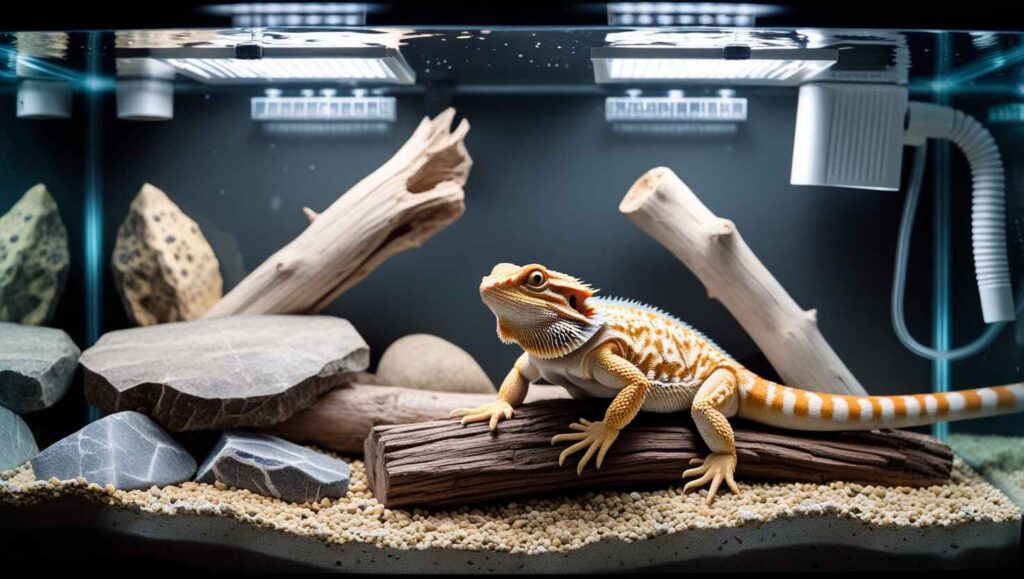
Good care and environment are essential for your dragon’s long life. Captive dragons can live 10 to 15 years with proper attention to feeding, hygiene, and a well-maintained tank setup. Meeting these needs helps prevent serious illness and keeps them healthy. These exotic creatures require the right environment and balanced care routines to avoid health issues like metabolic bone disease.
Food
A balanced diet is key at all life stages. For babies, juveniles, and adult dragons, provide live insects and fresh vegetables in appropriate amounts. Overfeeding can cause obesity. Insects like dubia roaches should be gut-loaded to enhance nutrients, while greens like collard greens, mustard greens, and prickly pear make excellent daily staples. Avoid poisonous foods like avocados and mushrooms. Dust meals with calcium powder and vitamin D3 to support bone development and prevent disease.
Environment
Your dragon’s natural environment is hot and arid, like a desert. A large tank—minimum 40-gallon for smaller dragons and 50-gallon for those over 16+ inches—is ideal. Provide safe substrate to avoid impaction, allowing them to crawl or burrow. Maintain proper temperature gradients with a self-ballasted mercury vapor lamp or UVB bulb, replacing it every 6 months. Ensure there’s a dark area for sleep. Never allow cohabitation, as it can cause starvation, fights, or stress.
Hygiene
Good hygiene prevents illness and keeps your dragon happy. Clean the tank regularly, removing uneaten food, fruit, and dead feeders. Bathed dragons shed better and stay hydrated. Proper hydration prevents shedding problems. Watch for abnormalities like limping or stress marks, and schedule veterinary exams that include bloodwork and fecal tests. New dragons should be quarantined before joining others to avoid the spread of parasites. This care ensures your pet lives a longer life.
Conclusion
Bearded dragons thrive when provided with proper care, including a balanced diet, correct lighting, and regular vet visits. Maintaining a suitable habitat with controlled temperatures and hygiene is crucial. Preventive care reduces the risk of serious illnesses, helping your bearded dragon live a healthy, full life of up to 15 years in captivity.
Kindly note: The content shared in this blog is gathered from online sources, some of which may not be verified. For accurate guidance on caring for your Bearded dragons, it is recommended to seek advice from a qualified veterinarian.

